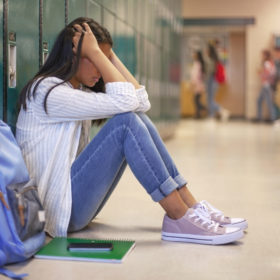Gratitude For A Better School Year

With Thanksgiving around the corner, we are reminded that holidays and any time we can safely spend with our loved ones are especially cherished. They also act as an excellent opportunity to focus on gratitude.
The uncertainty that COVID-19 brought taught us to give our energy to the good things life has to offer. The great news is we can give attention to what we’re grateful for every day, and the whole family can be involved!
The Benefits
While gratitude can play a huge role in your overall mental health, it can also affect your physical health. Positive side effects include reduced stress and anxiety, increased productivity, higher motivation, and improved sleep. All of these are vital in maintaining your physical well-being. Additionally, gratitude teaches everyone to be more present in the moment.
Your Child, Gratitude, And Learning
Gratitude bridges our brains’ cognitive and emotional realms, essential for your child’s development. It’s a valuable tool for developing resiliency and helping a student cope with the stresses of learning in a pandemic. As humans, we stress more about negative experiences than positive ones. Learning to find the good in a situation builds a strong sense of self. It also motivates the students to be more successful in the classroom.
This skill can positively impact your child’s education by:
- Improving the student’s social and emotional well-being. A recent study in China found that grateful teens tend to be less anxious and depressed. Engaging in this practice gives them a stronger ability to think of and use different coping strategies in any situation.
- Leading to higher levels of life satisfaction and better grades.
- Teaching them to be comfortable with growth and change.
- Building connections among peers, which improves attendance and class participation.
How to Practise Gratitude
Mental Health can affect a student’s ability to be present and learn. Therefore, it is important to keep your child’s brain fit. Every part of our brains should be exercised regularly, including the “gratitude muscle”. Below are a few ways students can learn to implement gratitude into their daily lives.
- Write in a journal daily, guided by prompts or making a list of things to be grateful for
- Participate in gratitude activities, like a gratitude jar or creating a collage
- Use a gratitude app
- Get outside to appreciate the beauty of nature
- Sign up as a volunteer at a non-profit organization
- Meditate with your gratitude list
- Say thank you more often
- Make it a part of everyday life. For example, share what everyone is grateful for during dinner.
Gratitude strengthens a positive mindset by reminding us that everything is not as bad as it seems. With the power of appreciation, your child will have the resilience they need to achieve school success, no matter the circumstances!




